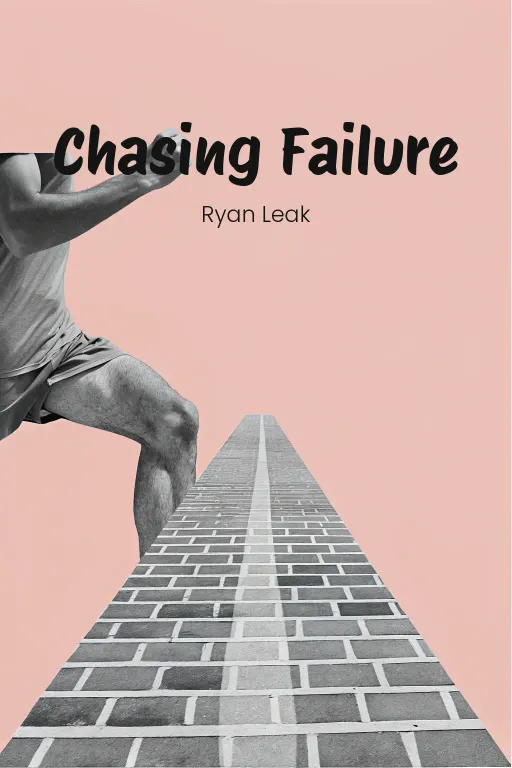
Free Your Mind: Ditch the Approval Addiction
Podcast by Beta You with Alex and Michelle
Free Your Mind: Ditch the Approval Addiction
Part 1
Alex: Hey everyone, welcome back to the show! Let's dive right in with a question: Have you ever really stopped to wonder why you get so hung up on what other people think? Or whether the choices you're making are truly yours, or just... borrowed from somewhere else? Michelle: Oof, Alex, you're not messing around today! Existential dread right out of the gate! I mean, honestly, who hasn’t felt that little sting when you’re expecting validation and… crickets? It's brutal. Like you’re stuck in some weird, invisible competition. Alex: Exactly! And that's where Shwetabh Gangwar's book, Insanely Practical Ideas to Free Your Mind from All Bullshit, comes into play. It really digs into how societal norms, fear of rejection, and that constant need for approval shape—and, let’s be real, often mess up—who we are and our overall happiness. Michelle: "Insanely Practical..." I like that. Gangwar doesn't mince words, does he? Sounds like he's saying, "Wake up, people! You've been played. That identity you're rocking? Probably not as ‘you’ as you think. Time to reboot.” Alex: Reboot time! So, in this episode, we're going to unpack three big ideas from the book. First, how our upbringing and environment mold our identity way more than we give them credit for—and sometimes, not for the better. Michelle: So you're saying we’re pretty much all just walking, talking remixes of our parents' rules and just… whatever random stuff society throws at us? Alex: Precisely! Then, we're going to tackle how to root your self-worth in yourself, not in other people’s fleeting opinions. It's about breaking free from that exhausting approval-seeking cycle. Michelle: So, learning to be our own hype person? Minus the actual cheerleading routine, hopefully? Alex: Well, if pom-poms help, go for it! But yeah, it’s about internal validation. And finally, we'll get into cultivating real, meaningful relationships, minus all the messy expectations and performative stuff. Michelle: Translation: how do we stop over-analyzing every text message we send? Is that it? Alex: You know, Michelle, that might be part of it. But more significantly, it's about ditching those unhealthy narratives that creep into our relationships, and instead fostering connections that are genuinely supportive, right? Michelle: Okay, so we're talking about breaking molds, detoxing from validation, and learning to not be a walking, talking ball of anxiety in relationships. Got it. Alright, Alex, let’s do this.
Understanding Societal and Upbringing Influences
Part 2
Alex: Okay, let's get started by laying the groundwork – how our upbringing and societal influences shape us, often without us even realizing. Gangwar really emphasizes this, doesn't he? From day one, we're given this invisible set of rules about what's acceptable, admirable, "normal," you know? And the thing is, most of us just don't question it. Michelle: Right, so we’re basically following someone else's script, thinking it’s our own life story. And the really messed up part? The writers of that script – parents, teachers, society – often don't even realize they're holding the pen. They're just passing down their scripts. Alex: Exactly! He uses that great example of the child from a family obsessed with societal definitions of success. They grow up chasing job titles, degrees, wealth – all these external markers, because that's what they're taught equals worthiness. Then, bam, one day they hit this wall of existential dread, wondering, “Why do I hate my life even though I have everything I was told to want?” Michelle: Ugh, that's brutal. Like spending years climbing a ladder only to find out it's against the wrong building. And it’s not like people consciously think, "Okay, I'm gonna get my self-worth from my paycheck and a big office." It's just... baked in from the start. Alex: Right! Gangwar frames it as a key consequence of teaching “what to think” instead of “how to think.” Parents tell their kids, “Get straight As, and you’ll be successful.” But they rarely equip them to question why an 'A' even matters. What does success mean for ME? How do I define it? Michelle: Yeah, when you're taught what to think, it’s like a mental assembly line. Thoughts go in, conformity comes out. No room to adjust things, debug the code. It's just… parroting instructions. So when life throws you a curveball – like, say, a situation with no clear “right” answer – you're totally unprepared. Alex: Gangwar really drives this home with moral dilemmas, like questioning outdated cultural norms. If you haven't developed critical thinking, how can you manage something as complex as, say, navigating gender roles in a changing society? Do you keep following a path that feels wrong, just because it’s what you grew up with? Michelle: Or worse, what if you don't even realize there's another option? Like the kid who's taught questioning authority is disrespectful. As an adult, they’re so conflict-averse that setting boundaries feels like treason. Alex: Absolutely. And that creates people – even entire societies – stuck in cycles of emotional dependency and stagnation. It's heartbreaking, really. That burden of needing to please others, avoiding confrontation at all costs? It’s not just limiting; it’s exhausting. Michelle: Okay, but isn’t some of this unavoidable? I mean, kids need structure. Parents can't just hand a toddler a whiteboard and say, "Okay, think critically about what to eat." Isn’t there a balance between providing stability and stifling autonomy? Alex: That's a great point, Michelle. And Gangwar addresses this indirectly by emphasizing intentionality. Yes, structure is necessary, but it has to include opportunities for exploration. Science backs this up. Studies show that children encouraged to take risks, think independently, develop better adaptability and creativity. Without those opportunities, they’re just conditioned to default to safety and compliance. Michelle: So you’re saying it’s not about throwing out the rulebook, but about teaching kids to question whether the rules even make sense. Like, "Here's why we have this rule, but let's think about when it might not apply." Alex: Precisely! And that leads to a critical point Gangwar brings up: the connection between our upbringing and our emotional responses. Think about a child told their dream of being an artist is "impractical." That emotional sting doesn't just vanish – it morphs into this internalized belief that pursuing creativity is silly or shameful. Michelle: And then, years later, they’re at their corporate desk, doodling on spreadsheets, and wondering, "Why do I feel guilty every time I think about quitting?" Alex: Exactly, because their current emotions – fear, shame, guilt – aren't even rooted in today's reality. They're conditioned remnants of an outdated narrative they grew up believing. Gangwar says we need to decouple those emotional responses from objective reality. Michelle: Okay, but how? I mean, telling someone to stop feeling guilty about choices? That’s like asking a cat to stop knocking glasses off tables. It's not gonna happen overnight. Alex: It's definitely a process. Gangwar suggests intentional self-reflection – like regular journaling. Take Anil, for example, one of his case studies. He was the textbook case of parental pressure: funneled into engineering, successful financially, but miserable. By mapping his emotions, asking himself why he feared disappointing his parents, he realized those fears weren't based on reality – just ingrained childhood conditioning. Michelle: And once he cracked that code, he stopped being paralyzed by their disapproval. I mean, I'm guessing his mom wasn't thrilled when he told her he was swapping engineering for filmmaking, but… at least it didn’t crush him anymore. Alex: Exactly. He took small, practical steps – like writing scripts, connecting with others – until he could reclaim his autonomy. It's such a powerful reminder that our upbringing doesn't have to define us forever. We can rewrite the script. Michelle: Okay, big takeaway: No one’s saying burn your childhood rulebook. But don’t let it be your only manual, right? Add a few chapters of your own.
Redefining Self-Worth and Validation
Part 3
Alex: Exactly, Michelle. Which leads perfectly into Gangwar's next big idea: redefining self-worth and validation. Recognizing these influences – societal expectations, emotional baggage and all – sets the stage for building internal strength and emotional resilience. Basically, how do we break free from constantly seeking approval and start validating ourselves? Michelle: Self-validation, huh? Easier said than done, wouldn’t you say? We’re wired to care about what others think. Is it even realistic to say, "I don't care what anyone thinks" and actually believe it? Alex: Well, that’s the interesting part. Gangwar isn't suggesting we become completely indifferent, it's about balance. Right now, most of us let other people's opinions dictate our self-worth. The idea is to shift that weight inward, focusing more on our values and our personal growth. It's about turning validation from a need into a nice-to-have. Michelle: But aren't we biologically programmed for external validation? I mean, back in the day, tribal acceptance was necessary for survival, right? "Mess up, and you're out – good luck fighting that saber-tooth tiger by yourself!" That kind of thing. Alex: Definitely, we’re naturally drawn to connection and approval. What Gangwar argues is that modern society amplifies this instinct, especially with social media. It’s no longer about survival, it's an addiction. Think about how someone's mood can depend on Instagram likes. Michelle: Social media’s like validation on steroids, isn’t it? Where a thumbs-up means you’re king, and silence throws you into an existential crisis. Alex: Precisely! And Gangwar compares this pursuit to an addiction. Like a drug, the high from a compliment fades quickly. You're left needing more, eroding your authenticity, and handing over your happiness to someone else. Michelle: I mean, who hasn't crafted a post, thinking, "What's going to get the best reaction?" It becomes performance art, not expression. Alex: Exactly! Gangwar presents intrinsic motivation as a solution. Rather than seeking applause, focus on what fulfills you and aligns with your values. He offers strategies for recognizing the temporary nature of external validation. Michelle: That’s a tough one, though. When someone praises a presentation or I get a standing ovation, it feels fantastic. Then... poof... it’s gone! And you think, "Why is that dopamine wearing off already?" Alex: Right, that’s exactly what he describes. Like fireworks: exciting, but fleeting. If your self-worth depends on that, you'll always chase the next display. The advice is to turn inward – focus on what you find meaningful, with or without applause. Michelle: Like the pianist who spends years mastering their craft. Even without an audience, the satisfaction comes from within. Alex: Exactly. Their accomplishment isn't based on external validation, but on their effort. Gangwar calls this redefining “specialness.” Instead of waiting for others to deem you special, you earn it through consistent effort towards something meaningful to you. Michelle: I love that! But how do we apply it daily? Not everyone is mastering a piano sonata. What if you're in a routine job? How do you cultivate intrinsic motivation then? Alex: Good question, Gangwar addresses it. Channel energy into long-term development rather than short-term praise. Instead of work recognition, pursue a side passion, learn a skill, or focus on fitness. Michelle: So, diversify your sources of worth, right? Not just promotions, but personal growth. I like the emphasis on confronting why we crave validation. That journaling exercise is quite practical. Alex: Yes, very effective. Reflecting on a painful memory, like being ignored at a party, helps unpack feelings of rejection. Ask yourself, “Was this about me being unworthy, or just someone else's priorities?" It helps to lessen that rejection's impact. Michelle: And with enough work, seeing rejection as a mismatch of values, not an indictment of character. Gangwar's filter analogy is helpful here. It reframes rejection as a sorting mechanism, not a personal failure. Alex: Right. The job interview scenario. Feeling inadequate after being turned down, but it could simply be that you weren’t a good fit for the role. Accept it as feedback and move towards better opportunities. Michelle: And that's huge! Shifting from self-doubt to self-awareness. Each rejection becomes more about "What can I learn from this?" and less about "What's wrong with me?" Alex: Exactly. Gangwar shares the story of an entrepreneur facing constant rejection from investors. They treated each failure as feedback to improve their pitch. Eventually, that paved the way to finding the right backers. It’s resilience turning rejection into growth. Michelle: So, we’re not eliminating rejection, but accepting it as an inevitable part of growth. Life feels much lighter when you stop taking it so personally. Alex: Exactly! And that’s his core message: resilience is key to re-defining self-worth. When we detach our self-esteem from external responses, we empower ourselves.
Navigating Relationships and Personal Growth
Part 4
Alex: Right, so once you've got a solid sense of self, the next natural step is figuring out how to navigate relationships, right? Gangwar makes the point that when you're not relying on external validation for your worth, you're just in a better place to handle all kinds of interactions and grow as a person. I mean, it makes sense, doesn't it? How we treat others is really just a reflection of how we see ourselves. Michelle: Absolutely. And relationships are the ultimate testing ground, aren't they? Family, friends, partners—they're constantly pushing your buttons, sometimes unintentionally. And if you aren't clear on your own limits, well, good luck trying to stay sane. It's like trying to build a skyscraper on a swamp. Alex: Exactly! And that leads us to another one of Gangwar's key ideas: the importance of setting boundaries for healthy relationships and self-respect. He makes a really interesting distinction between healthy compromises and what he calls "toxic sacrifices," which is something we don't always think about. Michelle: Hold on, that's good. I think those two get mixed up all the time. “Compromise” is thrown around so casually, but he's saying there’s a right way and a wrong way to compromise. How do we tell the difference? Alex: Well, it really boils down to whether the compromise still allows you to be yourself. A healthy compromise might be something like, "You love movie nights; I love hiking. Let's alternate weekends." It's a give-and-take that respects both of your needs. But a toxic sacrifice? That's when you're suppressing who you are just to keep the peace or meet someone else's expectations. Over time, that doesn’t just hurt the relationship; it hurts you. Michelle: Okay, so if you’re giving up your hobbies because your partner wants to turn it into something for them, even though you don’t want to, that’s going into sacrifice territory. Alex: Exactly. And Gangwar emphasizes the long-term damage that can do. Resentment builds up, communication breaks down, and suddenly you’re in a relationship where one person feels invisible. He even uses the analogy of a nation with its own laws and borders—without them, you’d have chaos. So, if you don’t establish the "rules" of what you need in a relationship, you lose your autonomy and the mutual respect that relationships depend on. Michelle: I like that analogy, but let me push back a little. What if setting those boundaries creates conflict? Sometimes saying "no" feels like you're setting off a bomb. Alex: That's a fair point, and Gangwar doesn't ignore that. Setting boundaries can be uncomfortable, especially if you're dealing with someone who’s used to you always saying "yes." But the discomfort is temporary, and the benefits are long-lasting. He argues that relationships based on genuine respect for each other are worth the initial friction. Michelle: So he's saying we need to change our perspective. Like, sure, someone might initially resist when you set a boundary, but if they truly value you, they'll adjust. And if they don't? Maybe that relationship wasn't as strong as you thought. Alex: Exactly. And this is where he introduces another powerful idea: embracing rejection as an opportunity for growth, not something to avoid at all costs. And that goes for relationships, but also for life in general. Michelle: He sees rejection as instructive, not destructive. He mentions that it’s not there to crush you, it’s there to save you from investing in something that is a bad fit for you. Alex: Exactly! He gives the example of romantic rejection. Instead of self-blame in this situation, you can see it as confirmation that this relationship wouldn't have been right for either of you. It's not about not being “good enough", it's about compatibility. Michelle: And this is where his practicality comes in. He doesn’t just gives actual steps to process rejection, like taking a step back and asking yourself whether is this about me, or external factors? That kind of reflection makes it seem less personal. Alex: Absolutely. He suggests turning rejection into a data point. What did you learn? What does this say about your priorities? It’s a useful way to look at something that’s usually terrifying. Michelle: Okay, but what if rejection “does” feel personal? A creative project, or a job interview, where the rejection feels like they’re rejecting you. How can you separate the emotions from the information? Alex: That's where resilience and perspective come in. Gangwar suggests journaling. Write down what happened, how you feel, and then ask, "What do I really want to take away from this experience?" That builds emotional resilience. Michelle: So it’s a question of adapting your reaction. Like, instead of saying, I failed, you consider what you can take away from the experience. Alex: Exactly. And Gangwar's idea that “people are weird” makes it easier. He basically says that everyone's shaped by their own unique quirks, so why take things so personally? Michelle: The “people are weird” philosophy—it’s wonderful isn’t it? Once you recognize that everyone is just muddling through, like you, it is easier to accept their quirks, and your own. Alex: Right. And it takes a lot of pressure off relationships. Instead of expecting perfection, you can approach people with curiosity and empathy. It becomes less about "Why are they doing this?" and more about "What's motivating them, and how can I respond authentically?" Michelle: So, it’s about giving everyone, including yourself, a pass to be human. Which is freeing, not just in relationships, but in life in general.
Conclusion
Part 5
Alex: Okay, let's tie everything together. Today, we really dug into how society and our upbringing kind of mold our beliefs and self-worth, right? Often, it feels like we're just acting out roles that aren't even ours. And we explored Gangwar’s ideas, urging us to really question those roles, to think critically, and to shift our focus from seeking external validation to empowering ourselves from within. Michelle: Exactly! And we talked about that whole exhausting validation trap, didn't we? How so many of us tie our self-worth to getting a “like” or a thumbs-up from others. Instead, Gangwar challenges us to really anchor our value in our own growth, our effort, and most importantly, in ourselves. It's a tough habit to break, though. Alex: Absolutely. And we also touched on how all of this impacts our relationships. Healthy relationships need boundaries, respect for each other's individuality, and the courage to see rejection as a way to filter out what doesn’t fit, instead of taking it as a personal judgment. All these ideas remind us that growing as a person starts with really taking control of our minds and our connections with others. Michelle: So, if you feel like you're stuck living someone else's life, grab a pen and start writing your own story. Question the rules, set boundaries, and remember, you don't need anyone's permission to be yourself, unapologetically. Alex: And remember to be kind to yourself and others along the way, because we're all just trying to figure things out. After all, as Gangwar says, “People are weird.” And honestly, that’s… strangely comforting, isn’t it? Knowing we're all a little strange in our own ways? Michelle: Couldn't agree more. Alright, until next time, everyone – stay curious, stay critical, and most importantly, stay true to yourself.









